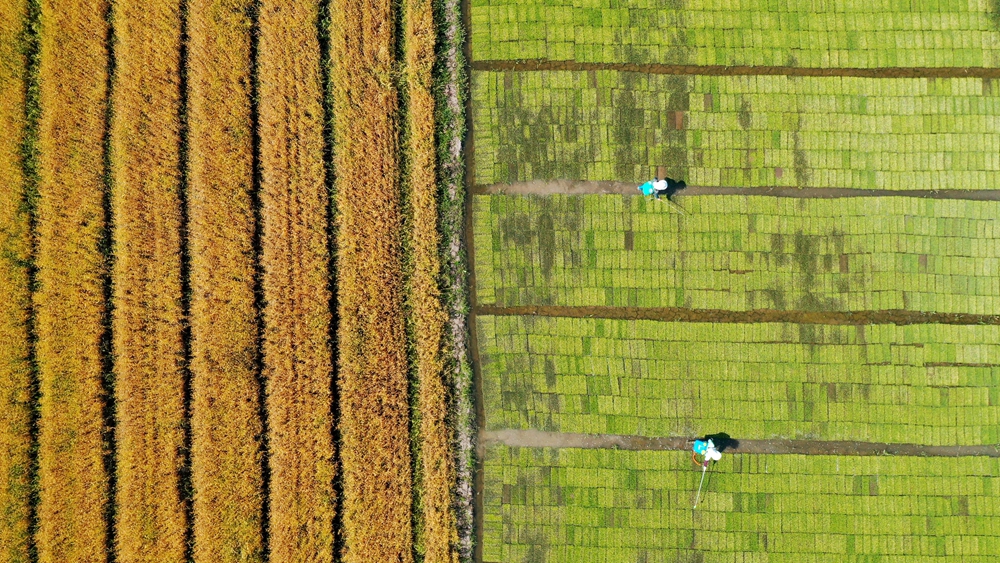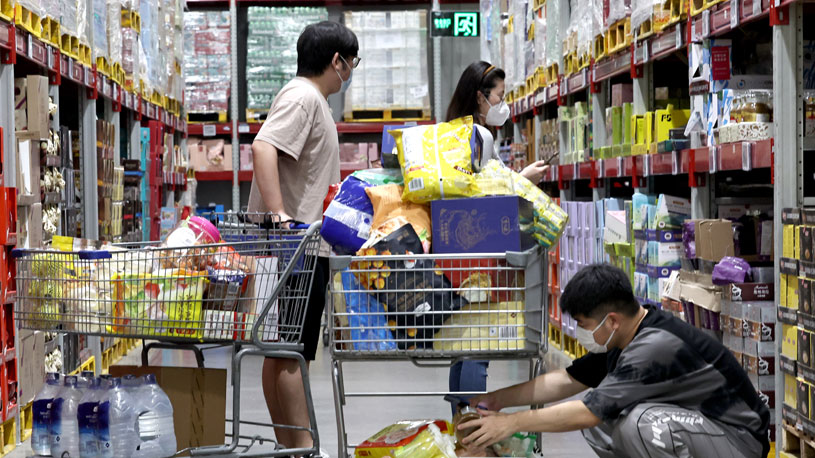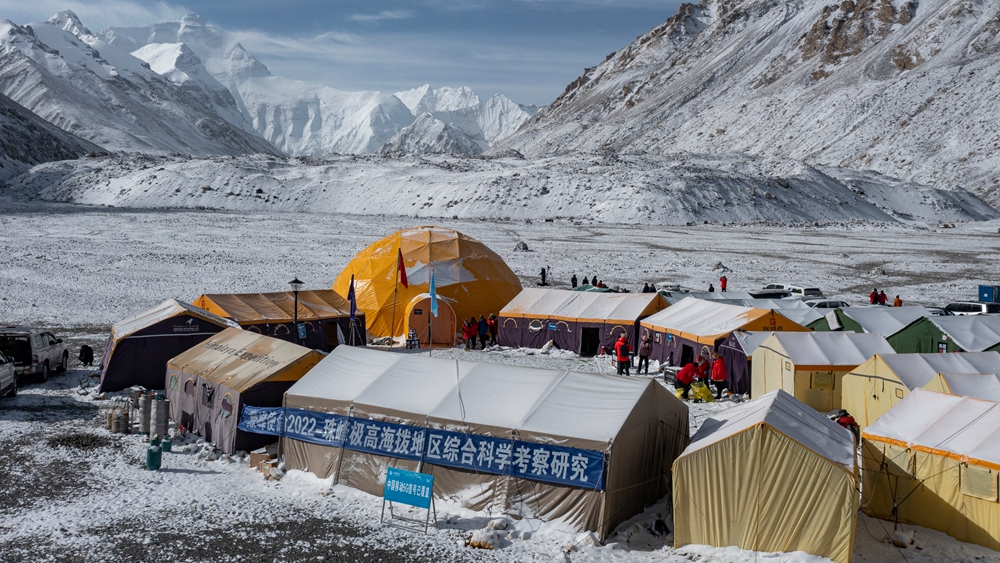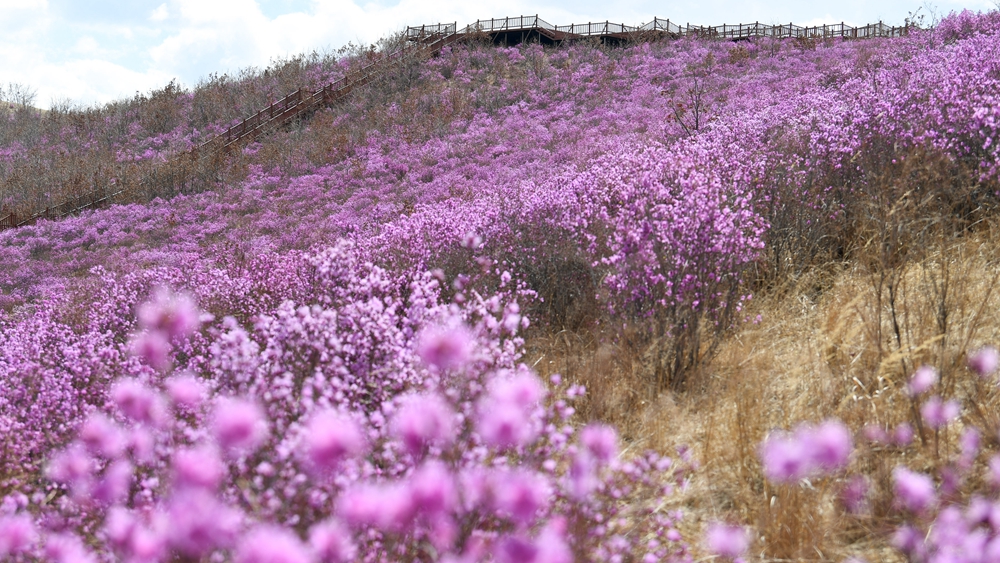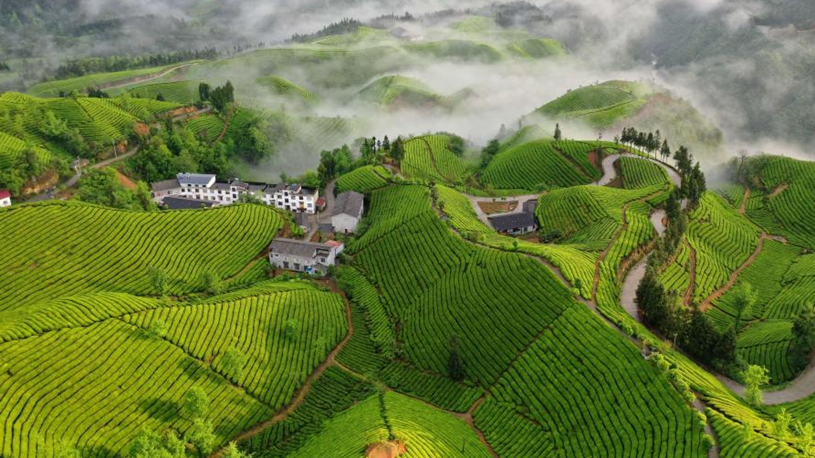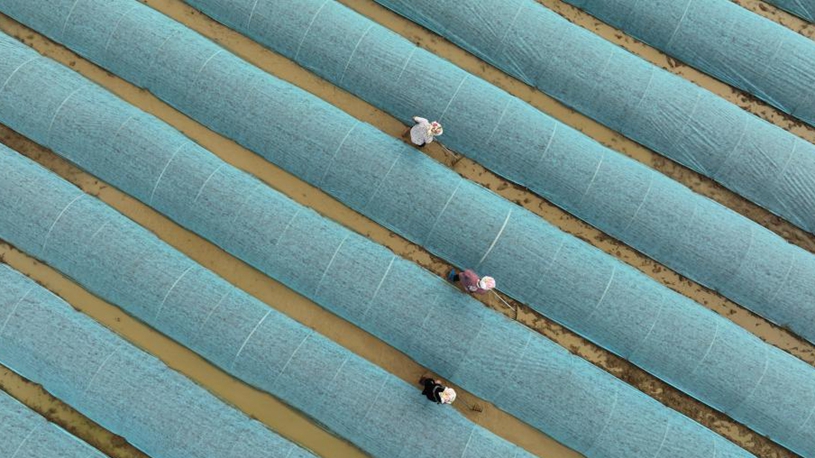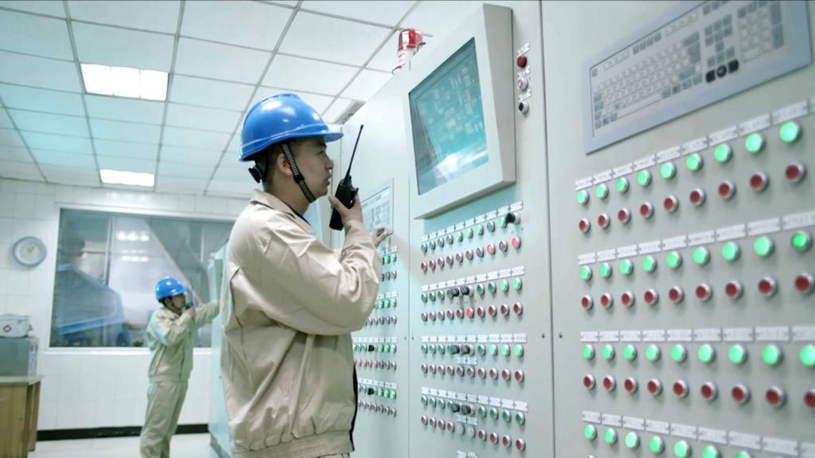* Despite the impact of COVID-19, China's consumption has seen a boost during the five-day May Day holiday.
* To encourage holiday consumption such as tourism within provinces amid the pandemic, local governments have come up with various preferential policies including discounted or free tickets for scenic spots.
* Online businesses, represented by livestreaming shopping and takeout service, have highlighted holiday consumption.
CHANGSHA, May 5 (Xinhua) -- During the recently concluded five-day May Day holiday, many places in China introduced preferential policies to boost holiday consumption while strictly carrying out epidemic prevention and control measures.
The resurgences of the epidemic in multiple cities since March have weighed notably on consumption growth in China. On April 25, China unveiled guidelines to further tap the country's consumption potential, with detailed measures to tackle short-term bottlenecks and boost longer-term consumption vitality.
China saw a total of 160 million domestic tourist trips and 64.68 billion yuan (about 9.77 billion U.S. dollars) in tourism revenue during the holiday which lasted from April 30 to May 4 this year, said the Ministry of Culture and Tourism on Wednesday.
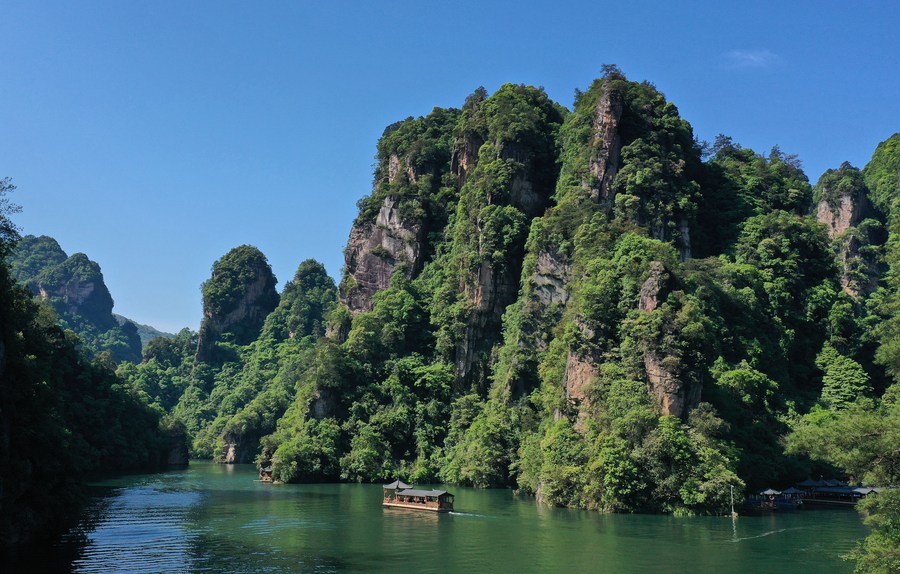
Aerial photo shows tourists taking a boat tour at Baofenghu scenic area in Zhangjiajie, central China's Hunan Province, May 3, 2022. (Photo by Wu Yongbing/Xinhua)
LOCAL TRIPS ENCOURAGED
Many provinces in China have encouraged residents to travel locally during the holiday, and many scenic areas have offered discounted or free tickets to attract local tourists.
In central China's Hunan Province, many scenic spots have launched preferential policies for locals during the holiday. For example, the Wulingyuan scenic area and Tianmen Mountain in Zhangjiajie offered free tickets for residents from the province.
As of May 2, more than 50,000 visits had been made to Zhangjiajie over the holiday, and B&B bookings also increased 43-fold from the previous week.
In Haikou, capital of south China's Hainan Province, six new double-decker buses started offering city tours, which were among the city's latest offerings for tourists.
"Haikou has newly packaged its tourism products to encourage people in the city and province to travel in Haikou and stimulate holiday consumption potential," said Wang Ke, director of the city's Bureau of Tourism, Culture, Radio, Television and Sports.
Statistics show that Haikou received 307,100 tourists and generated 309 million yuan in tourism revenue during the five-day holiday.
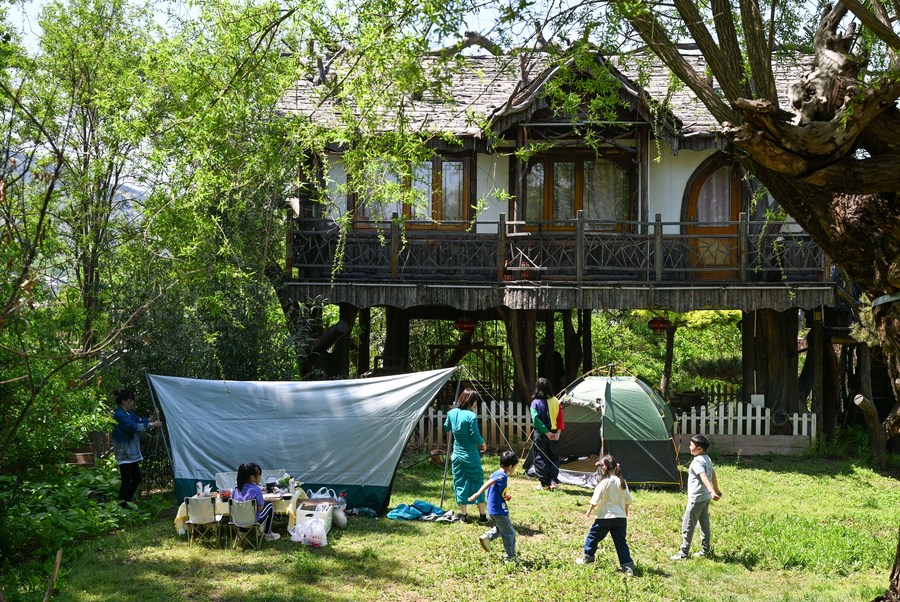
People camp at a park in Jizhou District of north China's Tianjin, May 2, 2022. (Xinhua/Sun Fanyue)
Camping was also a popular choice with holidayers. According to Dianping, the Chinese version of Yelp, searches for camping jumped 151 percent from the previous month and nearly threefold from last year.
"The Xi'an station of the 'HiKing Wild Luxury Camp' was fully booked more than 20 days in advance. Stations under the brand also reached their maximum reception capacity," said Wang Chunwang, who runs a camping business in Xi'an.
COUPONS STIMULATE CONSUMPTION
With the implementation of precise anti-epidemic measures, the overall COVID situation in most parts of China has stabilized, boosting the economic recovery in major shopping districts during the holiday.
In Hunan, tourists queued up to enter gourmet shops and took photos in Taiping Street, one of Changsha's most popular sites.
"I did a free nucleic acid test when I got off the plane. Here, you scan a QR code to enter public places, and shops provide hand sanitizer. Such policies make people feel reassured," said a visitor surnamed Zhang.
Zhang said the discounts offered by the shops were attractive, and he bought many souvenirs.
According to the commerce department of Hunan, the sales revenue of its 298 major retail enterprises and 72 major catering companies reached 2.02 billion yuan, up 0.6 percent year on year.
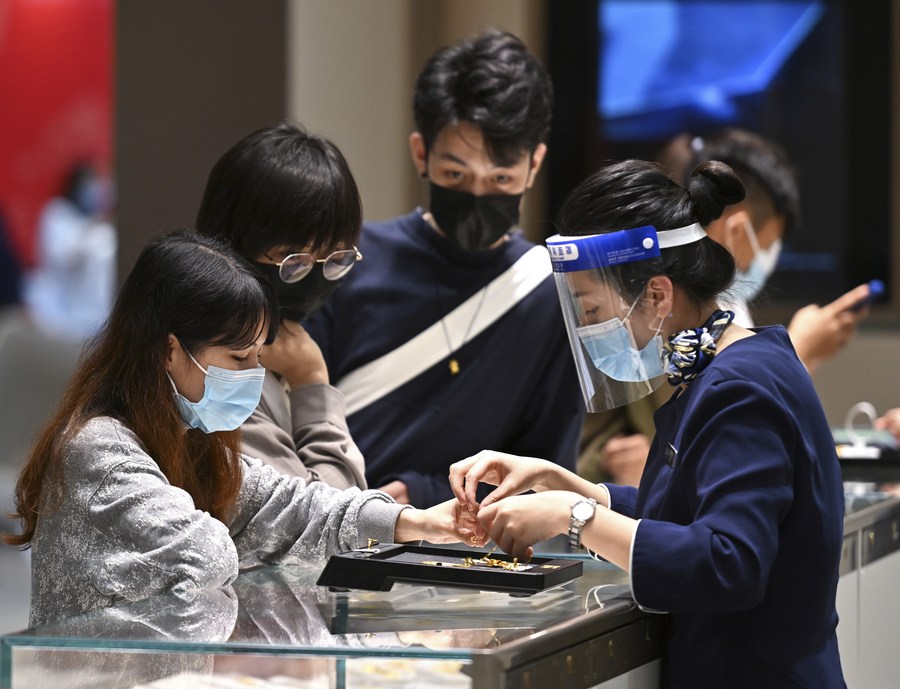
Customers visit a duty-free shopping mall in Haikou, south China's Hainan Province, May 2, 2022. (Xinhua/Guo Cheng)
In order to stimulate consumers' enthusiasm, Hainan, Hunan, Shaanxi and many other provinces have adopted methods such as issuing consumption coupons and carrying out promotional events.
During the holiday, Hainan guided banks and business enterprises to participate in the distribution of consumption coupons for shopping, dining and tourism in the province, totaling more than 200 million yuan in value.
"It's a great deal using the coupons to buy duty-free products," said Li Xueru, a visitor from Shenzhen.
ONLINE BUSINESS
Online business, represented by livestreaming shopping and takeout service, has highlighted holiday consumption.
"I'm not in the mood to cook during the holiday. Although it's not allowed to dine in, it's very convenient to order takeout as restaurants offer self-pickup service and discounts," said Xie Yue, a Beijing citizen.
According to Chinese online food delivery giant Meituan, searches for pickup meals in Beijing increased by about 30 percent compared with before the holiday.
In Fuzhou, capital of east China's Fujian Province, livestreaming sessions on food, makeup and fashion were offered to stimulate people's holiday spending. On the first day of the holiday, the online retail sales in Fuzhou reached 360 million yuan, up 12.5 percent year on year.
The Ministry of Commerce said at a press conference before the holiday that it would work with local commercial authorities to promote consumption, introduce targeted measures to boost consumption based on local conditions, promote the sustained recovery of consumption and consolidate the fundamental role of consumption in economic development.
(Video reporters: Zhang Yujie, Sun Yi, Zhang Jian, Cai Xinyi, Zhou Huimin, Guo Cheng; Video editors: Lin Lin, Zhang Yuhong) ■

